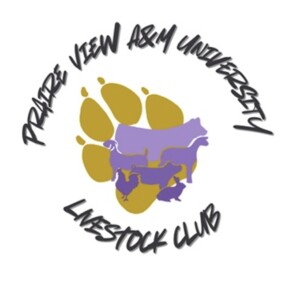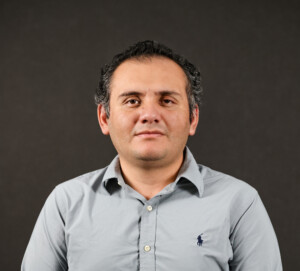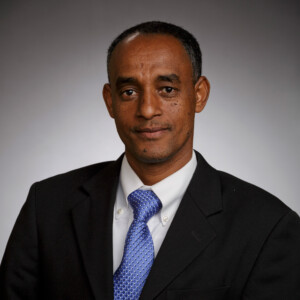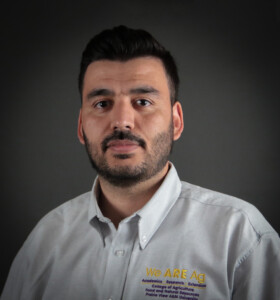About
Texas leads the nation with approximately 850,000 meat goats and ranks fourth with approximately 18,000 dairy goats. The International Goat Research Center continues its historical path of conducting cutting-edge research applying biotechnology and, more recently, “omics” technologies to the field of goat reproduction. The center has added research in the areas of feed efficiency, milk and meat production, production of meat goat composite breeds, and milk and meat product development. The IGRC has enriched the field of reproductive biology in the goat by characterizing the abnormally-regressing corpus luteum (CL), that led to embryonic loss and reduced pregnancy rates. They have recently utilized high-resolution color-Doppler ultrasound to develop a method for increasing the pregnancy rate in goats when performing artificial insemination. Further studies have characterized the microbiota of the goat female reproductive tract and the adaption of the GrowSafe system to determine residual feed intake, (RFI, efficiency) in weanling goats. Recently, the IGRC has established collaborative research to mitigate methane emissions, heat stress, and parasite control in goats.
The Center utilizes these technologies in a multidisciplinary approach that promotes the integration of IGRC and Cooperative Agriculture Research Center (CARC) staff expertise, Cooperative Extension Program (CEP) personnel, CAFNR facilities (IGRC Labs, GrowSafe System, Greenfeed System, Micro-dairy, and Meat Lab), and research collaborators who have been cultivated within other PVAMU departments, other academic institutions, and industry scientists. Strengthening research and teaching collaborations with animal/veterinary science and engineering sciences will create an interactive environment where the next generation of animal and veterinary scientists will be trained using research to teach the scientific method, critical thinking, problem solving, and communication skills
Grants
- Developing Genomics Approach for Mitigating Enteric Methane Emissions in Goats (USDA, NIFA)
- Alleviating Heat Stress on Buck Fertility to Ensure Food Security (USDA, NIFA)
- Evaluating the Nutritional Profile of Industrial Hemp Farm-Byproducts and Extraction Residues as Alternative Feed Resources for Goats (USDA, NIFA)
- Improvement of Dairy Production and Quality by a Lactoferrin-Methyl-Sulfonyl-Methane Complex as Immunomodulator to Target Sub-Clinical Mastitis (USDA, NIFA)
- Developing a Sustainable Meat Goat Production and Marketing System for the Southeastern United States through an 1890 Universities Consortium (USDA, NIFA)
- Development and evaluation of value-added goat meat products (USDA, NIFA)
- Système d’Innovation en Production Animale (USAID)
Publications
- Chen, L., Foxworth, W., Horner, S., Hitit, M., Kidane, N. and Memili, E., 2024. Risk Factor Analysis and Genetic Parameter Estimation for Pre-Weaning Mortality Traits in Boer, Spanish, and Crossbred Goat Kids. Animals, 14(7), p.1085.
- Hitit, M., Kaya, A. and Memili, E., 2024. Sperm long non-coding RNAs as markers for ram fertility. Frontiers in Veterinary Science, 11, p.1337939.
- Hitit, M. and Memili, E., 2022. Sperm signatures of fertility and freezability. Animal Reproduction Science, 247, p.107147.
- Hitit, M., Kose, M., Kaya, M.S., Kırbas, M., Dursun, S., Alak, I. and Atli, M.O., 2022. Circulating miRNAs in maternal plasma as potential biomarkers of early pregnancy in sheep. Frontiers in Genetics, 13, p.929477.
- Hitit, M., Özbek, M., Ayaz-Guner, S., Guner, H., Oztug, M., Bodu, M., Kirbas, M., Bulbul, B., Bucak, M.N., Ataman, M.B. and Memili, E., 2021. Proteomic fertility markers in ram sperm. Animal Reproduction Science, 235, p.106882.
- Mora-Gutierrez A, Núñez de González MT, Woldesenbet S, Attaie R, Jung Y. Influence of Deliverable Form of Dietary Vitamin D3 on the Immune Response in Late-Lactating Dairy Goats. Dairy. 2024; 5(2):308-315. https://doi.org/10.3390/dairy5020025
Extension Activities

4-H Goat Kid Giveaway Program A program led by the IGRC, the giveaway provides a small number of 4-H students across the state with a goat kid to raise, show, and breed in an effort to promote the importance of goats to the agricultural economy. This program is supported by the USDA National Institute of Food and Agriculture, 1890 Extension Formula Program under Section 1444
Student Engagement
The students show and exhibit the research herd at the IGRC at PVAMU. In addition to showing the animals, they also demonstrate their showmanship skills, which is now well they can talk to the judges, the information they gain from working with their animal, and the time spent working with the researchers at the IGRC, as well.

Volunteer Opportunities
Please follow the link to volunteer at the International Goat Research Center (IGRC). Volunteers play a vital role in supporting our mission, and we welcome those who wish to contribute their time and skills. Please note that this form is strictly for volunteer applications only and does not pertain to any paid positions. For information on paid job opportunities, please visit TAMUS PVAMU External Jobs.







